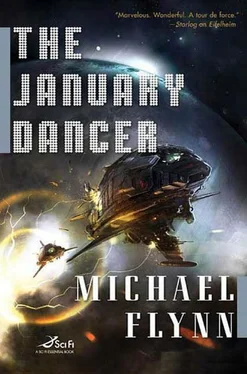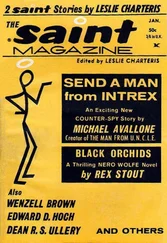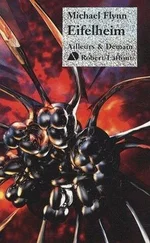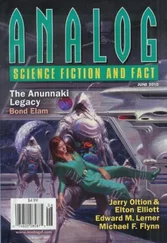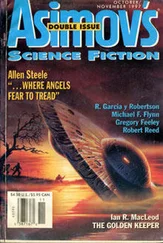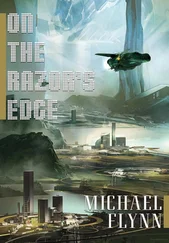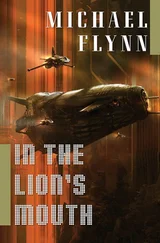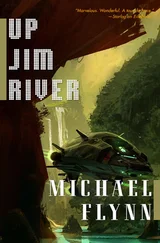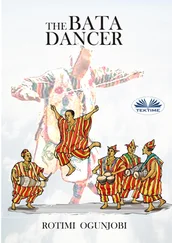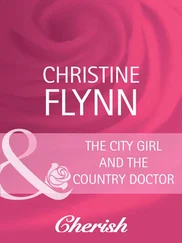The Fendy ate for a time in silence while behind him a monkey screeched in a brass cage. Then he inclined his head and the servant hastened to him and they bent their heads together in whispers. A wave of the Fendy’s fingers sent the man from the room.
“I have put the question out,” he said. “An answer may return on the echo. Meanwhile, be thou my guest and I shall call in women who know a little of the rock sharky and we shall dine on sweetmeats and dates.” He clapped his hands. “I am miserable that I cannot offer thee better than these poor inept dancers; but they do not oft stumble, and should one catch thy fancy…” He made a fig with his fist.
The Fudir bowed where he sat. “Thou art too generous, Fendy. I deserve not such largesse, but will for thy honor accept it; though from the dancing women’s comfort, I beg exemption.”
The Fendy’s thick red lips split his beard in laughter. “Oh, ho! Oh, ho! That madness cometh betimes to all men. May thou regainest soon thy sanity!”
While they dined, they spoke of matters affecting Terrans. Those of the Kingdom fared moderately well compared to some worlds. “But in the Pashlik, Fortune turned her face from us. The last Pash but one—Pablo IV Alqazar, that was—seized all the wealth of the Corner of Chewdad Day Pashlik to pay off his debts—and he was a man of costly habits. Then he expelled all our people, lest they demand it back. The son discovered that money was not a thing to have, but a slave that one sends forth to labor. Hah-hah. Now, the grandson seeketh to woo us back, and some hath chanced it for the sake of the dime; but for the most part their children have found a home with us here.”
“We live on the sufferance of others,” the Fudir said. “Never will we be safe entire ‘until the lions ride back on the wave,’ and we have our own world once again.”
The dancing girls, as promised, did not stumble much, although considering in how many directions they shook their bodies, it was a marvel that they did not. The Fudir wondered in which cultures of ancient Earth their dance had originated.
Most likely, he knew, it was an amalgam of several. During the Dark Age, the songs and legends of the Vraddy, of the Zhõgwó, of the Murkans and others had been blended by folk themselves deliberately commingled. Only the most painstaking scholars could tease the threads apart, and even then not to their certain knowledge.
Yet, the dancing was sensuous and rousing, and the sweetmeats and caesodias pleasing to the palate. The dancers wore petal skirts and halter tops, midriffs ill-concealed by sheer taffeta veils—except for the boys, of course, who wore only white cotton sirwals. The Fudir found his pulse quickening to the rock beat, the tinkling zills, and the undulating bodies of the dancers, so different from the syncopated and coordinated vradanadyam on Jehovah. One dancer in particular swayed around his hassock, plucking a date from the salver and placing it between his lips, only to whirl away laughing.
The Fendy’s servant returned several times during the dance to kneel and whisper in the Fendy’s ear. That worthy would stroke his beard listening and nod and the man would scurry off once more. The Fudir did not grudge patience. The phantom fleet had a long head start and dashing off at random with incomplete information would not close the distance.
When the dance was ended and the pipes had stilled and the panting dancers had departed, the Fendy, with a gracious wave of his hand, turned over to the Fudir a flimsy bearing the notes his man had collected from the whispers of the Corner. “This one,” he said, gesturing with a nail, “may be he whom thou seeketh. But there be further news, O Seeker, to interest thee.” A smile emerged from the forest of his beard. “Know that thou art also sought. One hears the Fudir of Jehovah asked for in low places about the city, in brothels and in bars.”
The Fudir grunted. “They know where to look for me, then.” He thought Hugh or Greystroke might be trying to get in touch.
“Ah, thou art the soul of wit,” said his host. “She soundeth quite anxious to find you.” Again, he allowed the smile to show.
Bridget ban? Images of flesh and petal skirts whirled in his mind.
“Ah surely, the madness has you.” The Fendy laughed. “May fortune fly with you on your quest. On each of your quests, haha! You could have had a dancer here tonight; but perhaps you will find another Dancer later. You and this Alabastrine woman.”
The Fudir had already joined his host in the laughter; but the last comment brought him up short. An Alabastrine woman?
Hugh took the Tigrine Avenue tube to Alkorry Street, where he departed the capsule to find himself in a neighborhood of narrow buildings and narrower byways. Most of the windows were dark or dimly lit through yellowed shades, and Alkorry Street itself lurked in permanent shadows. The Tigrine Line was elevated in this part of the City and so the rows of apartments had that look of dimness that evenfall only accented and daylight could not dispel.
On Venishànghai, people lived on the outside—the evening pramblo around the streets, greeting friends and neighbors, the dining ’frescos, the liveliness of the pyatsas —and went home only to sleep. Here, everyone seemed to huddle inside, like they were hiding, like the whole planet was a planet of vermin-boys. They must emerge sometimes, he thought, but only to work, not to live.
He shouldn’t judge everyone by the standards of his homeworld. Die Bolders might live as lively as anyone—but indoors; though “lively, but solitary” seemed a contradiction to him. Yet, if he had not spent so much of his childhood in hiding, would Die Bold strike him as grimly as it did?
He consulted his wristband. The Mild Beast was around the corner on Raggenow Way. According to the Terrans, their quarry could be found there almost every night. A Gat, they had said, and was that not a stroke of luck, for Hugh had heard the unmistakable Gatmander accent in the Hatchley Commonwealth years before.
He wondered what else the Terrans told the Fudir. He had seemed troubled on his return.
Raggenow Way was a gloomy side street lined on both sides by red-stone apartment buildings whose sameness was only heightened by the small tokens of differentiation. Each was precisely five stories tall; each possessed a broad stone staircase leading a half flight up from street level to the main entrance. Each had a passage under the staircase to a garden-level apartment half a flight below street level. But the moldings and cornices were slightly varied in pattern: geometric here, floral there; and the stairs were flanked by different cast-stone beasts perched on their concrete newel posts: lions, eagles, bears, and so on. Hugh wondered why they’d bothered.
The buildings were separated by narrow airyways. Reflexively, Hugh glanced down each as they passed, and noted iron grates blocking them. Back gardens, he thought, or car parks in the rear.
Stolid. That was the word to describe Die Bolders. They were not going anywhere, at least not anymore; but neither would they be moved from where they were.
He stopped before a wooden sign bearing the likeness of a Nolan’s Beast. The “blackface” bull wore a wreath of flowers girdling its horns and a look of unlikely benevolence on its features. The public house—they called it a “local” here—occupied the garden level and the entrance was underneath the main stairs. On New Eireann, the pubs had flaunted themselves. But then, if this were a local, the locals undoubtedly knew how to find it.
Inside, the taproom was low-ceilinged and raftered with black oak; but whitewashed between the beams, so the overall impression was not as oppressive as it might have been. The musty smell of beer mixed with the sharp metallic tang of whiskies. The haze of various leaves and smoldering lemongrass dubars hovered cloudlike just below the ceiling. On the farther side of the room, four men around a manual piano were singing something about “The Brazen Boatman.” They had not agreed upon a key beforehand, but such an agreement was of obviously little concern.
Читать дальше
